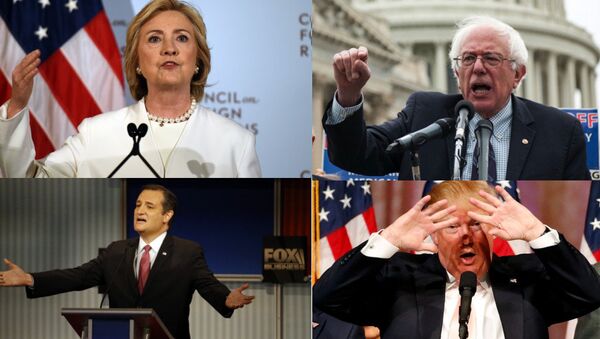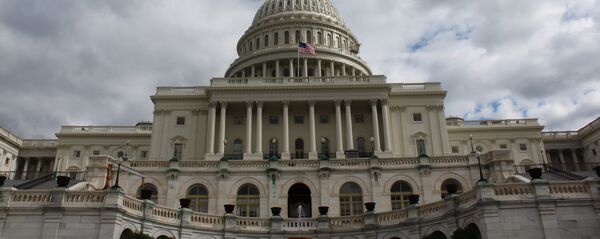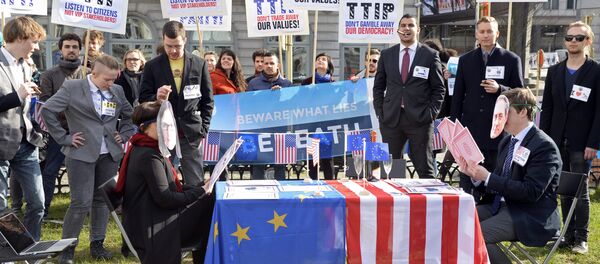With only five candidates remaining, discussion is turning to how the approaches of the remaining Democratic and Republican party nominees will work in reality, with increased attention turning towards the issues of defense, trade and international relations with countries like Russia.
Defense
The issue of defense has raised widespread discussion among the candidates, with varying opinions across the political spectrum.
While Democrat candidate Hillary Clinton and Republicans Ted Cruz and John Kasich have largely called for increased support to be given to defense forces and alliances like NATO, others have differed in their views.
.@BusinessInsider: “Do you trust Donald Trump with our military?”
— Hillary Clinton (@HillaryClinton) April 2, 2016
Hillary: “Of course not.” https://t.co/2qm7SVJSuRhttps://t.co/zjDxxTmNOI
Self-titled "democratic socialist" Bernie Sanders has long been critical of American overseas military intervention and is opposed to increases in defense spending, preferring to redirect funds towards domestic programs like health.
Meanwhile, outspoken Republican frontrunner Donald Trump has arguably generated the greatest controversy for his views.
'NATO is ripping off the United States. And you know what we do? Nothing' — Trump https://t.co/Ee4v6Fdt1A pic.twitter.com/KitT7P2zAO
— RT America (@RT_America) 3 April 2016
Despite saying that he would increase spending and support for defense forces, Trump has been hugely critical of US intervention in the Middle East, adding that he believed the NATO military alliance to be "obsolete" and in need of serious reform.
Russia
While establishment figures such as Hillary Clinton have called for the US to take a tougher stance against Russia through sanctions and greater NATO cooperation, others, such as Ted Cruz and John Kasich, have called for defensive weapons to be given to Ukraine, with Cruz also advocating setting up anti-ballistic batteries in some Eastern European states.
Conversely, while Bernie Sanders supports economic sanctions on Russia, the democratic candidate has been hugely critical of NATO expansion into former Soviet states in the 1990s and early 2000s, asking: "Since the Cold War is over, why are we militarily provoking Russia?"
Once again, Donald Trump perhaps raises the most interesting view towards Russia. While backing calls to support Ukraine, Trump has long praised the leadership qualities of Russian leader Vladimir Putin and spoke favorably of Russia's intervention against Daesh in Syria.
Trade
With protests and negotiations surrounding the TPP and TTIP trade deals, the matter of international trade has been another issue of widespread debate throughout the presidential primaries.
Clinton, Cruz and Trump have expressed criticism of the TPP and other similar multinational trade agreements, with the latter arguing that the US could negotiate other deals to better suit its own national interests.
Perhaps the most vehement critic of the US' trade policy is Bernie Sanders, who has history of opposing trade deals. Sanders is leading the campaign to reject the TPP and the TTIP (which is still being negotiated), arguing that it simply gives too much power to big business and undermines workers' rights.




